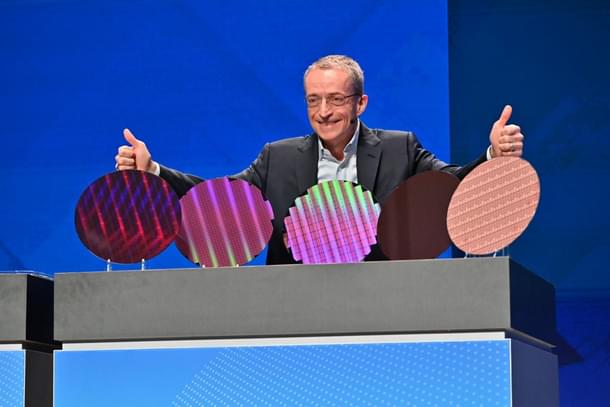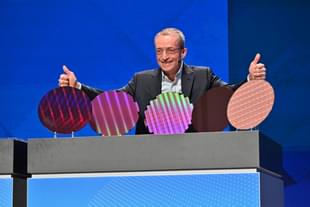Tech
When Chips Are Down: Does Amazon AI Deal Signal A Turnaround For Intel?
Swarajya Staff
Sep 17, 2024, 02:07 PM | Updated 02:12 PM IST
Save & read from anywhere!
Bookmark stories for easy access on any device or the Swarajya app.


Intel has secured Amazon's AWS unit as a customer for the design and manufacturing of custom artificial intelligence (AI) chips. This deal bolsters Intel CEO Pat Gelsinger's turnaround plan, which aims to bifurcate the company into a fabless design studio and a pure-play foundry.
Intel will produce an "artificial intelligence fabric chip" for AWS on its advanced 18A process node. Additionally, Intel announced it has been awarded up to $3 billion by the Biden administration for producing microchips for U.S. military and intelligence applications under the CHIPS and Science Act's Secure Enclave program.
Intel's shares surged roughly 8% in extended trading on Tuesday following these announcement. This uptick comes after Intel's dismal Q2 financial results, which reported a 1% year-over-year sales decline and a net loss of $1.6 billion, contrasting with the $1.5 billion profit in the same period in 2023.
Industry observers attribute Intel's struggles to its focus on personal computers, missing the mobile-phone chip boom, and repeated manufacturing delays.
It missed the mobile chip boom with the iPhone's release in 2007 failing to secure Apple as a client due to disagreements on price and intellectual property.
Underinvesting in semiconductor manufacturing allowed Taiwan Semiconductor Manufacturing Co.(TSMC) to surpass it and emerge as undisputed leader in cutting edge fabs.
Intel also lags behind in the rapidly growing AI chip market, dominated by Nvidia. Intel's Gaudi AI chip sales totaled $500 million this year, far behind Nvidia's $20 billion quarterly sales.
The problems for the chipmaker was further exacerbated as it lost market share even in PC processors to rival AMD and Arm-based chips.
To revive its fortunes, Gelsinger is working to separate design and manufacturing into distinct businesses and invest heavily in its foundry business. He underlined the steps in a memo to employees.
Selling stakes in Altera, its programmable chip business
Pausing construction of German and Polish fabs for at least two years
Reorganising divisions, including automotive and "edge" businesses
Prioritising core technology behind central processing units
Cutting office locations by two-thirds by year-end
Intel will maintain its manufacturing business (foundry) but grant it greater independence, potentially establishing it as an independent subsidiary.
Since Gelsinger's appointment, Intel has made significant moves in chip manufacturing, aided by government incentives. The company announced new chip factory projects in Arizona, Ohio, Germany, and other locations, including:
Arizona project: Two $20 billion semiconductor factories operational by 2024
Ohio project ("Silicon Heartland"): Initial $20 billion investment, potentially expanding to eight fabs
These projects were made possible, in part, by the Chips Act of 2022, which awarded Intel a preliminary $8.5 billion.




